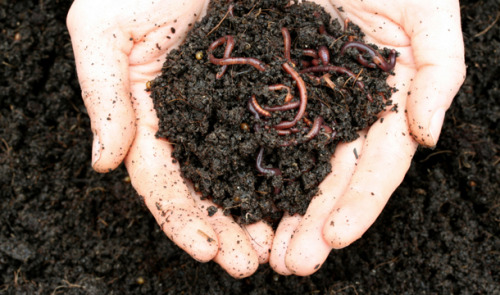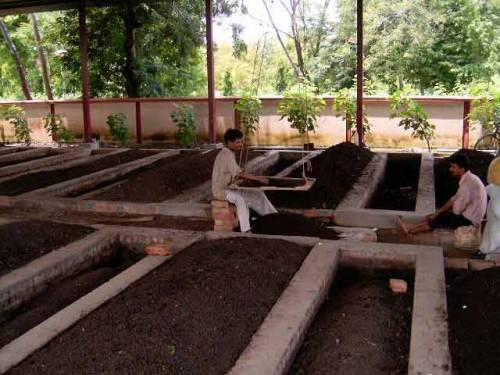REPORT: earthworm vermicompost can replace destructive chemical fertilizers
Earthworms and its excreta (vermicast) promises to usher in the ‘Second Green Revolution’ by completely replacing the destructive agrochemicals which did more harm than good to both the farmers and their farmland. Earthworms restore & improve soil fertility and significantly boost crop productivity. Earthworms excreta (vermicast) is a nutritive ‘organic fertilizer’ rich in humus, NKP, micronutrients, beneficial soil microbes—‘nitrogenfixing & phosphate solubilizing bacteria’ & ‘actinomycets’ and growth hormones ‘auxins’, ‘gibberlins’ & ‘cytokinins’.

Both earthworms and its vermicast & body liquid (vermiwash) are scientifically proving as both ‘growth promoters & protectors’ for crop plants. In our experiments with corn & wheat crops, tomato and eggplants it displayed excellent growth performances in terms of height of plants, color & texture of leaves, appearance of flowers & fruits, seed ears etc. as compared to chemical fertilizers and the conventional compost. There is also less incidences of ‘pest & disease attack’ and ‘reduced demand of water’ for irrigation in plants grown on vermicompost. Presence of live earthworms in soil also makes significant difference in flower and fruit formation in vegetable crops. Composts work as a ‘slowrelease fertilizer’ whereas chemical fertilizers release their nutrients rather quickly in soil and soon get depleted.

Significant amount of ‘chemical nitrogen’ is lost from soil due to oxidation in sunlight. However, with application of vermicompost the ‘organic nitrogen’ tends to be released much faster from the excreted ‘humus’ by worms and those mineralised by them and the net overall efficiency of nitrogen (N) is considerably greater than that of chemical fertilizers. Availability of phosphorus (P) is sometimes much greater. Our study shows that earthworms and vermicompost can promote growth from 50 to 100% over conventional compost & 30 to 40% over chemical fertilizers besides protecting the soil and the agro ecosystem while producing ‘nutritive and tasty food’ at a much economical cost (at least 50 75% less) as compared to the costly chemical fertilizers.
